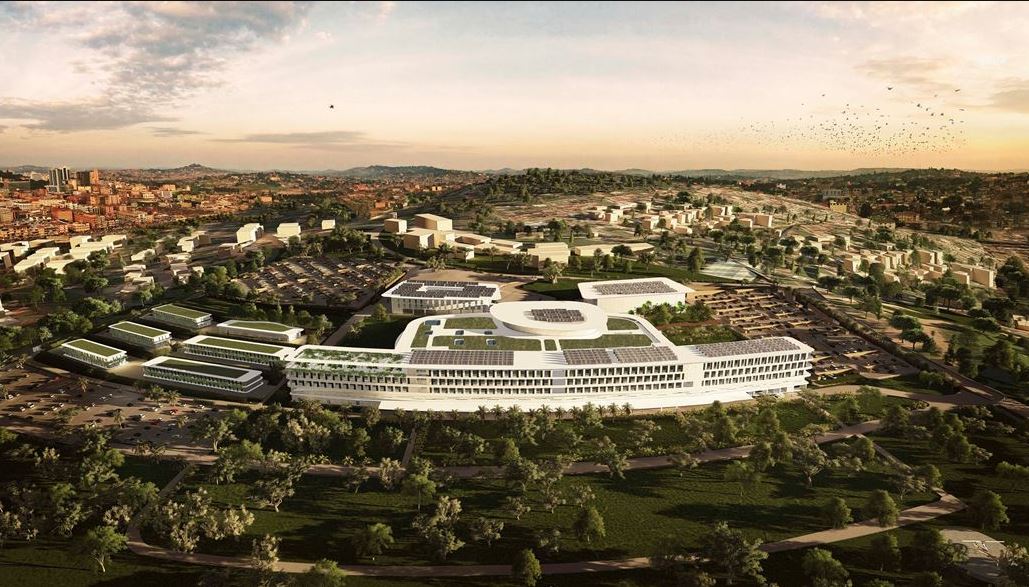Though it is commonly called FINASI-ROKO hospital or the Lubowa Speacilised Hospital, its veritable name is International Specialized Hospital of Uganda (ISHU). Finasi is an Italian consortium that deals in a wide range of activities including running specialized hospitals in different parts of the world.
Finasi’s role shall be to mobilize funds and expertise while ROKO is the contractor that will do the structural work of building the hospital. Mobilizing funds is solely the role of FINASI, the only part to be played by the government of Uganda is to issue a promissory note to whoever will be providing the funds to FINASI, but with the condition that payments will be made in installments over a period of 6 years for only work finished and certified depending on how the project is structured in parts.
Each section completed is what will have to be paid for not a lump sum figure of the project. Should FINASI fail to finish the project, the government will be liable to pay for only the finished part. This is not a guarantee but a promissory note.
The total cost of the project is $379.71m, inclusive of $129.81m which represents the “the time value of Money” or the interest cost of Money at a rate of 6.49% over the 6 years of construction. The total figure expects FINASI-ROKO as the project developer to raise financing for the design, construction, equipping and training of medical staff for 2 years.
So it should be noted that after the six years of construction, two years will be for equipping, staffing and training of medical personnel before the government takes over the total ownership of the hospital. The whole project will include a hospital of 264 beds, a budget hotel of 82 rooms, a conference hall of 500 seats, a health training school and staff housing, all covering 85,000 square meters of built-up area. the cost also includes medicines for 1 year and the training costs for Ugandan health professionals.
There has been fear that the government may incur losses for the unfinished work, but MoU clearly states that it is strictly issuing promissory notes for only the completed and certified work by government engineers. This puts the onus on FINASI-ROKO to do the work diligently if it has to be paid. After construction, the hospital shall be managed for 8 years by International Specialised Hospital of Uganda(ISHU) a subsidiary of FINASI international in partnership with the Pope John the 23rd Hospital in Bergamo.
There has been a lot of public debate as to why the government picked this public-private partnership model and whether it was a prudent move to outsource a hospital yet the money could have been used to equip Mulago hospital or other regional hospitals. The answer is found in the requirement of an accredited international hospital.
READ MORE: Parliament Divided On Shs1.3 Trillion Specialised Hospital Loan
The certification starts from the project design, construction, equipping and expertise of the medical personnel. Mulago by design is not fit for the standards of international accreditation. The designing of Mulago was on the standard of a national referral hospital, not an international specialized one. There have been questions about why the government chose this kind of model of hospital development. FINASI international group has experience in developing hospitals at international standards to enable Joint commission international(JCI) accreditation which government requires in order to stop the outflow of foreign exchange used to send persons abroad for advanced medical care.
It is estimated that $73m is spent on medical treatment abroad annually and about $113m on travel and upkeep. The information from the Uganda High Commission of India in Uganda shows that 8200 persons applied for medical visas in 2016, 5000 of whom were government sponsored. At average spending of $15000, this totals approximately $123m. The money saved on treatment abroad can be used to establish a government-owned world-class health care capacity to treat complicated medical ailments for national, regional and Africa as a whole.
The creation of a world-class health facility locally will allow many more patients to be treated with the same government resources. There will also be increased foreign exchange inflows as persons from the region will also increase medical tourism. An international medical facility also brings with it advanced skills and expertise within Uganda health professionals to provide specialized medical care given that ISHU will use 1100 Ugandan medical personnel, supervised by 30-40 medical expatriates. The proximity of ISHU will make it easier to provide advanced diagnostics for early dictation of major complicated ailments, as many cases of government-sponsored persons are sent abroad when the ailments are advanced and more difficult or impossible to treat.
ISHU stands the chance of being a regional training facility in specialized treatment. This can be a source of foreign exchange and transfer of knowledge. A reputation of any established institution is judged by the performance and expertise of its alumni. So with a number of specialists in African regional hospitals trained at ISHU, it will boost the international ratings of the medical standards of both the hospital and the country at large.




